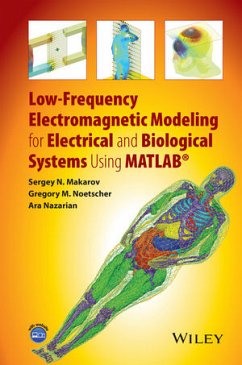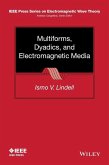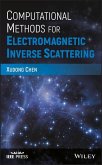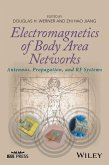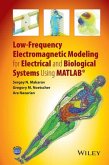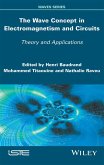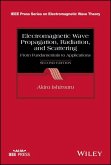Provides a detailed and systematic description of the Method of Moments (Boundary Element Method) for electromagnetic modeling at low frequencies and includes hands-on, application-based MATLAB® modules with user-friendly and intuitive GUI and a highly visualized interactive output.
Includes a full-body computational human phantom with over 120 triangular surface meshes extracted from the Visible Human Project® Female dataset of the National library of Medicine and fully compatible with MATLAB® and major commercial FEM/BEM electromagnetic software simulators.
This book covers the basic concepts of computational low-frequency electromagnetics in an application-based format and hones the knowledge of these concepts with hands-on MATLAB® modules. The book is divided into five parts. Part 1 discusses low-frequency electromagnetics, basic theory of triangular surface mesh generation, and computational human phantoms. Part 2 covers electrostatics of conductors and dielectrics, and direct current flow. Linear magnetostatics is analyzed in Part 3. Part 4 examines theory and applications of eddy currents. Finally, Part 5 evaluates nonlinear electrostatics. Application examples included in this book cover all major subjects of low-frequency electromagnetic theory. In addition, this book includes complete or summarized analytical solutions to a large number of quasi-static electromagnetic problems. Each Chapter concludes with a summary of the corresponding MATLAB® modules.
Includes a full-body computational human phantom with over 120 triangular surface meshes extracted from the Visible Human Project® Female dataset of the National library of Medicine and fully compatible with MATLAB® and major commercial FEM/BEM electromagnetic software simulators.
This book covers the basic concepts of computational low-frequency electromagnetics in an application-based format and hones the knowledge of these concepts with hands-on MATLAB® modules. The book is divided into five parts. Part 1 discusses low-frequency electromagnetics, basic theory of triangular surface mesh generation, and computational human phantoms. Part 2 covers electrostatics of conductors and dielectrics, and direct current flow. Linear magnetostatics is analyzed in Part 3. Part 4 examines theory and applications of eddy currents. Finally, Part 5 evaluates nonlinear electrostatics. Application examples included in this book cover all major subjects of low-frequency electromagnetic theory. In addition, this book includes complete or summarized analytical solutions to a large number of quasi-static electromagnetic problems. Each Chapter concludes with a summary of the corresponding MATLAB® modules.
- Combines fundamental electromagnetic theory and application-oriented computation algorithms in the form of stand alone MATLAB® modules
- Makes use of the three-dimensional Method of Moments (MoM) for static and quasistatic electromagnetic problems
- Contains a detailed full-body computational human phantom from the Visible Human Project® Female, embedded implant models, and a collection of homogeneous human shells
Dieser Download kann aus rechtlichen Gründen nur mit Rechnungsadresse in D ausgeliefert werden.

